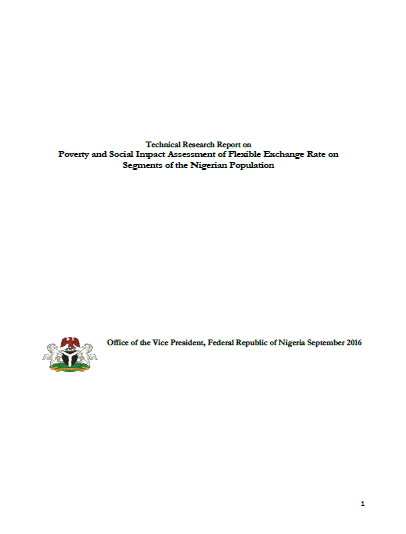In 2016, Nigeria’s government could no longer sustain its regime of general subsidies following a slump in global oil prices in 2014. As a result, the cost of electricity and petrol increased, while the exchange rate of the Naira was adjusted downwards. This report describes the findings of a study that examined the impact of the exchange rate adjustment on the welfare of different income groups in Nigeria, across rural and urban areas and six geopolitical zones. It also discusses potential intervention programmes to protect the poor from adverse welfare effects resulting from economic policy shocks.
Poverty and social impact assessment of flexible exchange rate on segments of the Nigerian population: technical research report
Resource type: Report
Sector: Budgeting and national planning
Year: 2016
File type: PDF
Number of pages: 53
File size: 754 KB

